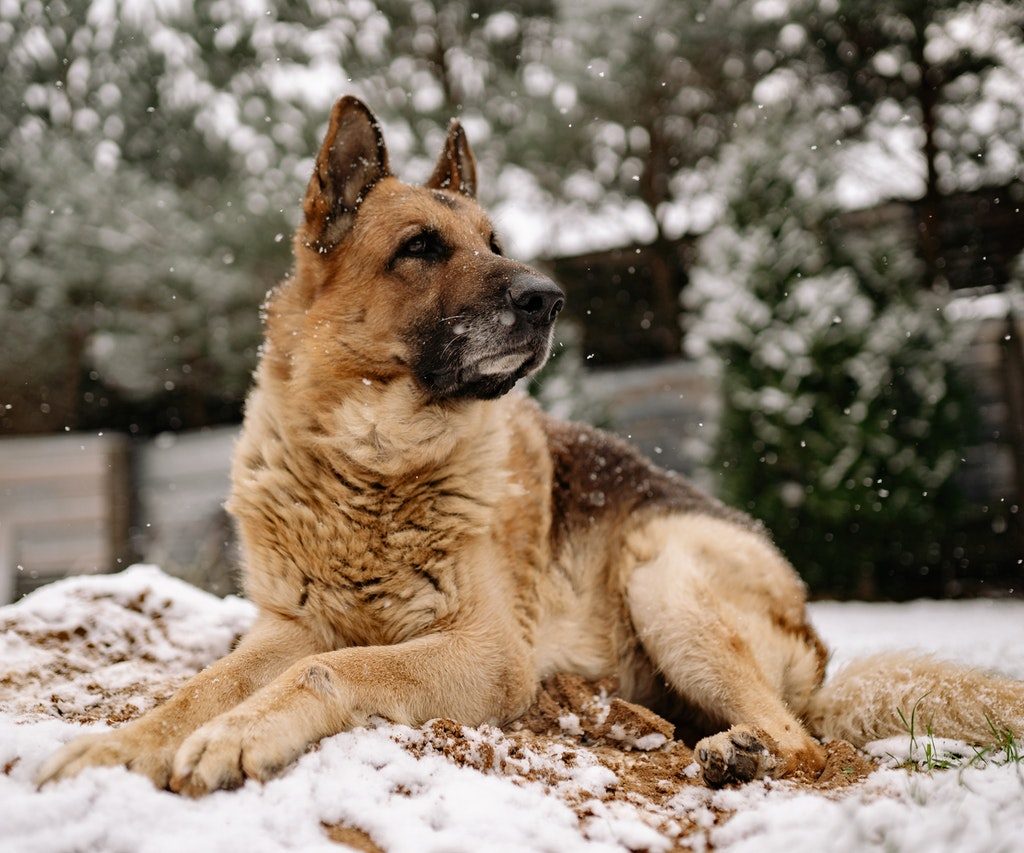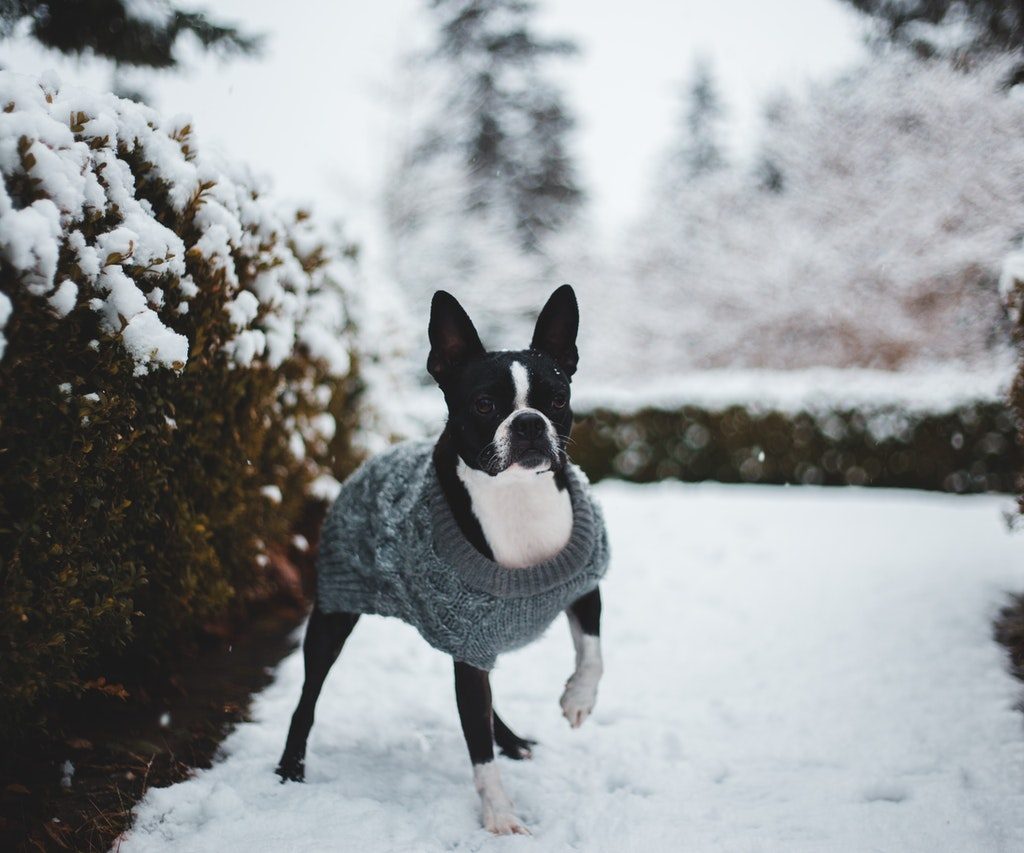Being a pet parent is one of the most incredible experiences in the world. Our dogs become beloved members of the family, and we form lasting bonds that are essential to our sense of well-being. However, sharing your home with a dog also comes with a lot of responsibility. From finding the perfect vet to keeping your dog’s weight in check, your pup depends on you for everything, including keeping them free of parasites.
Have you ever wondered, “Can dogs get fleas in the winter?” We’re here with the scoop on what you should know about tackling these obnoxious pests during the winter.

Do dogs get more fleas in winter?
Many insects hibernate when the temperature begins to dip. So, can dogs get fleas in the winter? Unfortunately, for pet parents, the peskiest of pests — the flea — is a year-round nuisance. But we have some good news, too: There are fewer fleas hopping around outdoors during the winter months, so your pooch is less likely to bring them in from his daily walk.
The downside to fewer fleas outdoors is the possibility that they’ve relocated indoors to escape the cold. If you want to ensure that your precious pooch remains flea-free all year long, you’ll need to continue treating your home and yard for fleas regardless of the weather. Here’s how you can prevent fleas year-round.
Clean your home thoroughly
If you suspect your dog has been bitten by fleas, you’ll need to sweep and vacuum the floors, paying close attention to any cracks and crevices where fleas can hide. Wash any bedding, curtains, rugs, pet beds, and soft toys to eliminate fleas and their eggs.
Treat every pet
Bathe every pet in your home with soap and warm water, combing them thoroughly with a flea comb to remove any lingering pests. You can also take your dog to the vet for a professional flea dip. At-home products are widely available, but anthrozoologist Brian Ogle says it’s best left in the hands of a professional. According to Ogle, “It’s best to use a dip under the direct orders of a veterinarian. Recent research suggests there have been as many as 1,600 pet deaths linked to the use of pyrethroids, a common ingredient found in many household insecticides.”
Call in the exterminator
Controlling a flea infestation in your home can be tricky. When in doubt, it’s time to call in the professionals. A pest control service can properly inspect your home for pests and make product recommendations, as well as treat your home and yard.
Fleas typically hide in dark spaces or congregate around food sources — you or your pet — so your pest control service will most likely focus on shady areas outdoors, baseboards, and the areas where your pup spends most of his time. Most pest control services can accommodate your needs by using pet-safe products, though we still recommend keeping your pup away from a recently sprayed home and yard until the insecticide has had ample time to dry.
Hit them again
Unfortunately, fleas have a complex life cycle that makes them difficult to kill in one fell swoop. You’ll want to treat your yard and home again — as well as vacuum and clean your house thoroughly — roughly one week after the initial treatment, as flea pupae are notoriously difficult to kill.
If even one pupa survives the initial treatment process, it can re-infest your entire home once it hatches. You should also dispose of any vacuum cleaner bags used while you have an active infestation. Fleas can survive inside the vacuum cleaner bag, allowing them to crawl out and begin their home invasion anew.

Do I need to treat my dog for fleas in winter?
It’s a common misconception that you can stop treating your dog for fleas during the winter months. Unfortunately, these tenacious pests can endure temperatures as frigid as 33 degrees Fahrenheit for up to five days, which gives them enough time to invade your home and treat your family like an all-you-can-eat buffet. Year-round flea treatment and prevention are essential to keeping your home free of pests.

Treat your pup for fleas year-round
Not only do fleas leave itchy, irritating bites, but they’re also known carriers of pathogens that can cause disease in humans. (It’s not our intention to frighten you, but flea bites can cause the plague.) In fact, a single female flea can lay over 2,000 eggs in her lifetime. While fleas are slightly less active during the colder months, these persistent pests don’t die off during the winter. Continue treating your pup for fleas year-round, maintain a clean home, and call in the professionals if you have an infestation.



